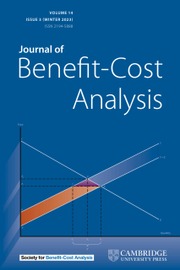Article contents
“We Test”: An Imagined Regulatory Future
Published online by Cambridge University Press: 15 December 2022
Abstract
There can be a serious tension between the commitment to cost-benefit analysis and a realistic appreciation of the limits of official knowledge. Without significant efforts to reduce those limits, that analysis might be inadequately informed. Whenever regulators face significant informational deficits, or what is sometimes called “the knowledge problem,” it is important to explore tools that take advantage of what the private sector knows; market-friendly tools, such as economic incentives, have important advantages on that count. An advanced regulatory system should also try to reduce the knowledge problem through three routes: (i) creative use of notice-and-comment rulemaking; (ii) retrospective analysis of regulations and their costs and benefits; and (iii) advance testing, as a way of informing ex ante analysis. For the future, the most promising approach is (iii).
Keywords
- Type
- Invited Paper
- Information
- Copyright
- © The Author(s), 2022. Published by Cambridge University Press on behalf of the Society for Benefit-Cost Analysis
Footnotes
This essay was the basis for the keynote address given at a conference on Agile Governance, held in Washington, DC, on 26 April 2022; readers are asked to make allowances for the informality of what was originally an oral presentation. Some parts of the essay draw on a chapter in Sunstein (2018).
References
- 1
- Cited by


